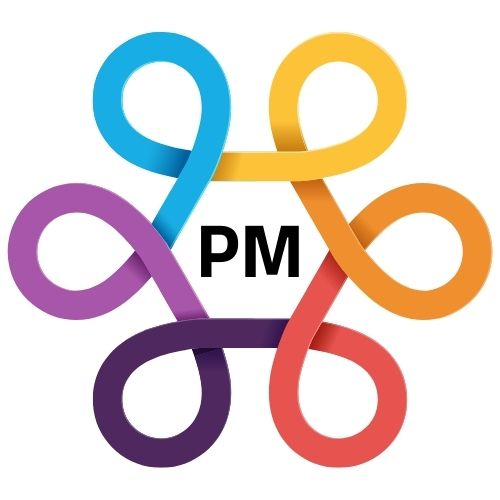Local Search Engine Optimisation Strategies for Small Businesses

Local Search Engine Optimisation (SEO) Strategies for Small Businesses...
In today’s digital world, small businesses must prioritize an online presence to thrive and stay competitive. Local SEO is one of the most effective ways to reach customers who are in your vicinity or looking for services you offer in your area. By optimizing for local search, small businesses can increase visibility, drive foot traffic, and attract local clients. Here are some local SEO strategies that can help small businesses get noticed:
1. Claim and Optimize Your Google My Business (GMB)
Profile
Google My Business (GMB) is a free tool that allows
businesses to manage their online presence across Google, including Search and
Maps. Optimizing your GMB profile is one of the most crucial steps in local
SEO. Here’s how you can do it:
- Complete your profile: Make sure all fields in your GMB profile are filled out, including business name, address, phone number, website URL, and business hours.
- Add photos: Businesses with photos receive 42% more requests for directions and 35% more click-throughs to their websites.
- Get reviews: Encourage satisfied customers to leave positive reviews on your GMB page. Positive reviews can improve your rankings and build trust with potential clients.
- Use posts: Google My Business allows you to create posts about special offers, new products, events, or services. These updates can help your business stay relevant in local searches.
2. Ensure NAP Consistency (Name, Address, Phone Number)
Consistency is key when it comes to local SEO. Ensure that
your business name, address, and phone number (NAP) are consistent across all
online platforms, including your website, GMB, and local directories.
Inconsistent NAP information can confuse both users and search engines,
potentially hurting your rankings. Update your information on websites like
Yelp, Yellow Pages, and other local business directories.
3. Use Local Keywords
Incorporating local keywords into your website content helps
search engines understand where your business is located and what services you
provide in that area. Consider using the following:
- Location-specific terms: Use the name of your city, town, or neighborhood in your titles, meta descriptions, headings, and throughout your content. For example, “Best Yoga Studio in Madison Heights.”
- Service-based keywords: Combine your location with the services you offer, like “plumbing services in Grimsby” or “boutique clothing store in Louth.”
- Long-tail keywords: These are more specific phrases that potential customers may use to find your business, such as “affordable wedding photographer in Lincolnshire.”
4. Create Localized Content
Content marketing is a great way to engage local audiences
while improving SEO. Create blog posts, videos, or guides that are specific to
your local area. These can include:
- Local news and events
- Case studies of local customers or clients
- How-to guides for local problems
- Highlighting local partnerships or collaborations
Localized content helps search engines understand your
business is relevant to the area, which can increase your chances of appearing
in local search results.
5. Build Local Backlinks
Backlinks are an essential factor in SEO, but for local SEO,
local backlinks are especially valuable. These are links from other local
businesses, organizations, and media outlets. You can build local backlinks by:
- Partnering with local businesses: Collaborate with nearby businesses for cross-promotions or events, and ask them to link back to your website.
- Sponsor local events or charities: Sponsor community events or donate to charity and ask for a backlink in return.
- Submit to local directories: Register your business with local business directories like Yelp, Chamber of Commerce, and local government sites.
6. Optimize for Mobile
More and more local searches are happening on mobile
devices, with people looking for businesses while they’re on the go. Make sure
your website is mobile-friendly by:
- Using a responsive design that adjusts to different screen sizes.
- Ensuring fast page load speeds, as users tend to leave slow-loading sites.
- Simplifying navigation, so users can easily find information like contact details or your physical location.
7. Use Schema Markup
Schema markup is a type of code that you add to your website
to help search engines understand your content. It can improve how your
business is displayed in search results by providing additional information
like:
- Business hours
- Location
- Reviews and ratings
- Products or services offered
Adding schema markup to your site can improve click-through
rates and visibility in local search results.
8. Leverage Social Media for Local Engagement
Social media platforms like Facebook, Instagram, and Twitter
can help build your online presence and drive local traffic to your business.
Here’s how you can use social media for local SEO:
- Engage with local customers: Respond to customer inquiries, participate in
local discussions, and share community events. - Tag your location: When posting photos or updates, always tag your
location to ensure your content reaches local users. - Share user-generated content: Repost customer photos, reviews, or
testimonials to build credibility and connect with your community.
9. Monitor Local SEO Performance
Use analytics tools like Google Analytics, Google Search
Console, and GMB Insights to track the performance of your local SEO efforts.
Pay attention to metrics like website traffic, keyword rankings, and user
engagement to measure success and identify areas for improvement.
Final Thoughts
Local SEO is a powerful way for small businesses to attract
more local customers and stand out in their communities. By optimizing your
online presence for local searches, you increase your chances of being found by
potential clients who are ready to engage with your business. Implementing
these strategies, from claiming and optimizing your GMB profile to creating
localized content, can help your business thrive in the local search landscape
and drive more foot traffic and sales.
By focusing on local SEO, small businesses can compete with
larger companies by ensuring they are visible to the right audience—those
nearby and actively seeking what they offer.
